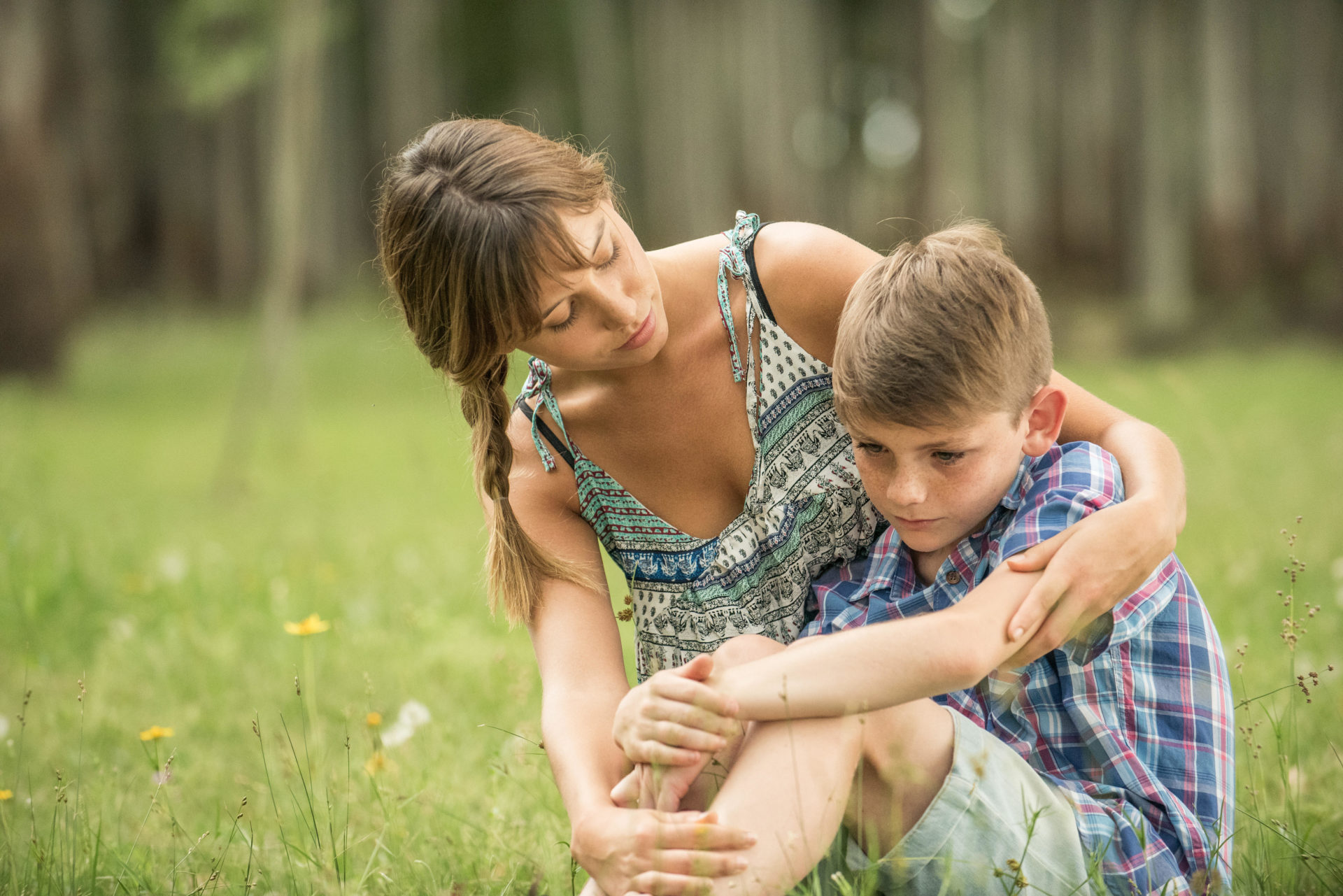This week on Parenting, one mother asked for help in managing her relationship with her autistic son, who she feels “completely responsible for”.
“I grew up with an unhappy and critical mother and I felt I needed to manage her moods,” she told Moncrieff.
“In my 40s now and after some therapy, I now have good boundaries with her, though I still feel guilty she’s elderly.
“The problem now is my management of my eight-year-old son.
“He has a mild learning disability and autism and was sick when he was younger.
“As a consequence, I feel completely responsible for him."
 Mother comforting son outdoors. Image: PhotoAlto / Alamy. 11 October 2016
Mother comforting son outdoors. Image: PhotoAlto / Alamy. 11 October 2016She said that her son has “very little in the way of friends”, and so she spends a lot of time playing with him and helping him to regulate his emotions.
However, this has led her to sometimes feeling "very trapped by him".
“I know I’m not giving him independence, but I just don’t know how,” she said.
The letter writer said her family is very supportive, but she has still found it difficult to go back to work, as she felt like her son struggled when she did.
'Take care of yourself'
Family psychotherapist Joanna Fortune said that this woman’s relationship with her mother seems to still have a huge effect on her.
“There’s something hardwired into you that you are now responsible for his happiness, just as you were for your mother’s happiness,” she said.
“You know what it’s like to grow up with an unhappy mother, and you, your family, your children, your partner, all deserve you to take care of yourself.
“While you felt that you needed to manage your mother’s moods, you then refer to your management of your eight-year-old son.
“There’s something here where you’re taking on responsibility for his holistic well-being and happiness – you cannot do that.”
 Little boy playing with blocks with mother looking. Image: Jacob Lund / Alamy. 15 June 2018
Little boy playing with blocks with mother looking. Image: Jacob Lund / Alamy. 15 June 2018Joanna said that while it is hard to watch your kids struggle, even children with additional needs need to be allowed to “wobble a little bit to find their footing”.
She recommended that setting up structured playdates or signing up for community activities could give her son more opportunities to socialise and learn to regulate around others, even if he doesn’t make any friends out of it.
“Is there one child you could do a short, very structured, play date, play experience with?” she said.
“And yes, you’re there, but not now like a helicopter hovering over them - let them play, and when you feel it’s running its course, call it to an end, little experiences like that.
“Is there an activity in the community your son could be involved in?
“Even if it’s very structured and he’s not authentically friends with the other kids there, he’s having a connected experience for the one hour, the 90 minutes of the activity.
“You also mentioned here about your daughter, who’s only 10, is good with him and your husband is great with him – let them in.”
According to Joanna, it doesn’t benefit either party to allow this codependent relationship to continue.
She recommended that this mother engage with a therapist to help her work through these challenges.
Main image: Upset mother and son ignoring each other. Image: Aleksandr Davydov / Alamy. 29 September 2019









